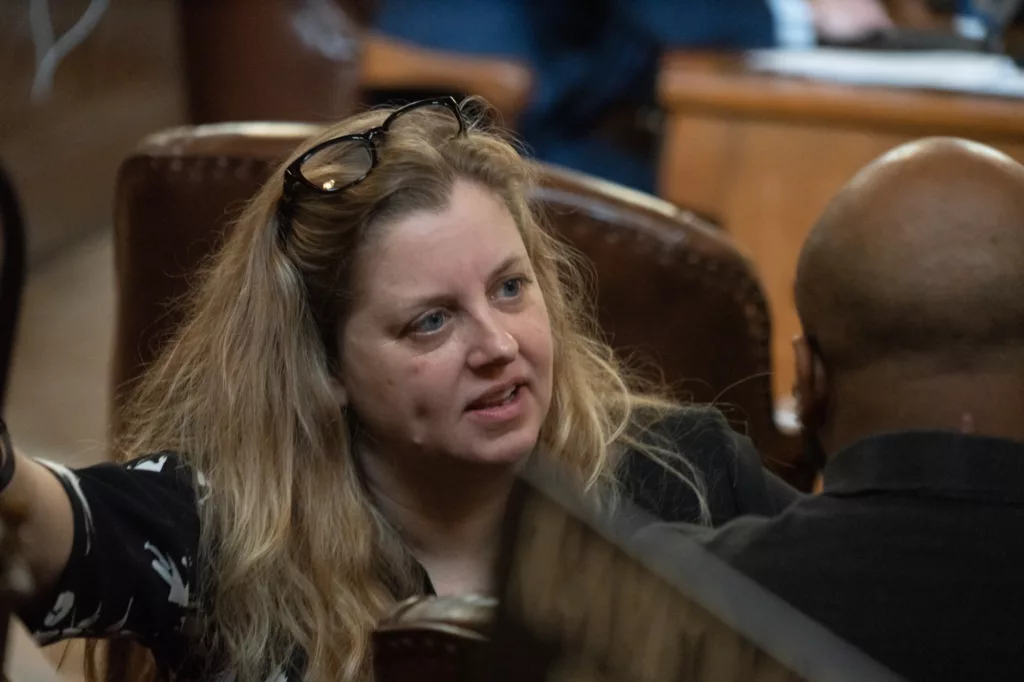A bill passed in 2021 aimed to spare victims of violent crime in Nebraska from the burdensome process of being reimbursed for medical treatment – instead allowing providers to send bills directly to the state.
But, two years later, the state hasn’t yet reimbursed a single provider through the new process.
The hospital reimbursement changes sought to address one piece of the state’s Crime Victim’s Reparations program, which is intended to financially aid victims of violent crime. A recent Flatwater Free Press investigation found Nebraska helps far fewer people than nearly every surrounding state.
The program’s lone staff member said the state has received only four reimbursement claims directly from providers – all from Methodist Health System. All four are still pending, Gretchen Mills said. That means no reimbursement has successfully been processed under the new law.
But in an email, Mills also wrote that there’s a fix coming soon.
“There is a focus underway to ensure those are processed as quickly as possible and that all future submitted claims are managed in a timely manner,” Mills wrote.
Three of Nebraska’s major hospital systems declined to make staff available to speak to Flatwater for this story. In statements, both CHI Health and Methodist confirmed that, two years after the law’s passage, they hadn’t successfully billed the program directly. Nebraska Medicine declined comment.
“Even though Methodist is now able to route unpaid balances to Nebraska’s Crime Victim’s Reparations Program, it remains a work in progress,” said Jeff Francis, vice president and chief financial officer, in a prepared statement. “We have not yet received a payment.”
Speeding up payments is part of what Legislative Bill 497, the legislation passed in 2021, set out to accomplish. The law is meant to lift the burden of applying for medical bill reimbursement from victims’ shoulders and expedite payments to health care providers. It passed without a single “no” vote.
Some victims of violent crime found themselves saddled with bills, unable to pay and even hounded by debt collectors as they worked to piece their lives back together, said advocates who work with victims of sexual assault and domestic violence.
Other victims avoided seeking the care they needed because of the expected costs, the advocates said in public comment.
“No survivor should have to worry about their ability to pay for medical care needed in the aftermath of violence that was perpetrated upon them,” said LB 497’s sponsor Sen. Wendy DeBoer of Omaha, a Democrat, in its public hearing.

In her testimony, DeBoer said that the average cost per victimization is $2,000 – more if a victim has a hospital stay. About 30% of victims of intimate partner violence pay their medical bills out of pocket, she said.
With LB 497’s passage, medical providers can apply to CVR directly, on behalf of victims of crimes like abuse and sexual assault, with their permission, so they aren’t entangled in the process.
But DeBoer later heard that the law’s rollout was going poorly, which spurred an interim study that focused on the CVR program. That study, in turn, inspired more legislation meant to improve the program. Those changes are currently under consideration in the Nebraska Legislature.
The issue, according to lawmakers, seems to be twofold: An “education gap” – providers don’t know the process exists – and an issue with how the program has traditionally processed claims.
It typically processes medical claims as a lump sum, after all bills are received, lawmakers said, but has signaled plans to start experimenting with a more pay-as-you-go strategy to expedite payments.
Even before the new process existed, Francis said, sending crime victims to collections wasn’t part of Methodist’s billing practices. After billing insurance, the hospital would write off any unpaid balances after 120 days.
“We encourage all victims of violence to seek medical care without worrying about bills or collections,” said Hanna Halpenny, forensic nursing program manager at Methodist Hospital and Methodist Women’s Hospital.


